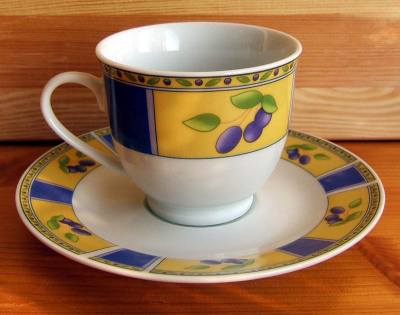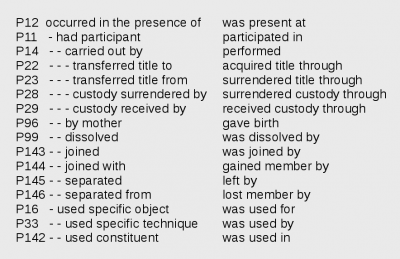Relationships: An essential component of art and culture
From filmstandards.org
Giving spice to metadata
Why do we add something to a collection of an archive, a museum, or a library? We do not add something because it weighs 3.5 kilograms, is of blue color, or is made of cardboard. We rather add it because it relates to something we know, and possibly, to other things in ways we still have to discover.
 http://commons.wikimedia.org/wiki/File:2006-10-15_Tasse%2BUntertasse-Pflaume01.jpg |
Trash or treasure? It all depends on relationships. Who drank from this cup? Was it someone important? Who was the previous owner? Is it a rare specimen or does it exist in thousands of exemplars? Who created the design and who manufactured it? Is it a specimen of an important artistic style? And perhaps most importantly: was it used in the set decoration for a film? |
